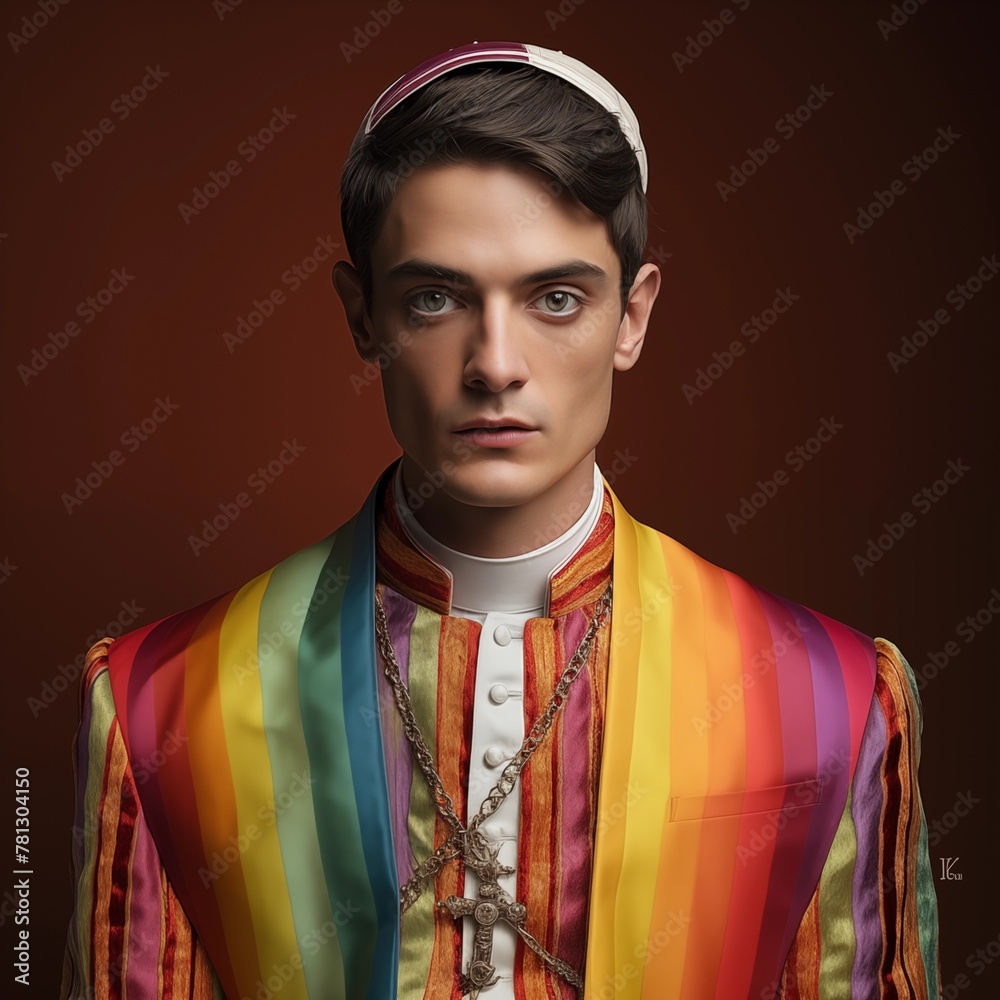Pope Francis has once again ignited controversy with his recent laudatory forward to a new book by Father James Martin, a figure who has consistently stirred debate within the Catholic Church due to his outspoken advocacy for gay rights. This move has reignited discussions about the Catholic Church’s stance on homosexuality and the broader implications for its doctrinal integrity and unity.
Father James Martin’s latest book, *Come Forth: The Raising of Lazarus and the Promise of Jesus’s Greatest Miracle*, received high praise from Pope Francis, who commended Martin as a man deeply in tune with the Word of God and rooted firmly in the Ignatian tradition. The pontiff’s praise, however, stands in stark contrast to Martin’s contentious history. Over the years, Martin has faced substantial pushback from various church leaders due to his vocal support for the LGBT community and calls for greater acceptance of homosexual behavior within the Church.
Notably, Pope Francis’ endorsement comes shortly after he reiterated the Catholic Church’s prohibition on admitting homosexuals into seminary training — a policy that Martin vehemently opposes. Martin’s rejoinder that the Church would be “immeasurably poorer” without gay priests underscores the ongoing and deep-seated divide among Catholic leaders regarding this issue. Martin’s assertion is bolstered by his personal experiences; he has publicly shared that many of his own mentors and spiritual guides over his decades-long priethood have been gay.
While Pope Francis’ warm remarks towards Martin are seen by some as a welcoming gesture, others within the Church hierarchy have issued strong warnings against Martin’s teachings. Emeritus Archbishop Charles J. Chaput of Philadelphia highlighted a troubling “pattern of ambiguity” in Martin’s stance on homosexuality. Chaput emphasized that Martin does not possess the authority to speak on behalf of the Church and clarified that Martin’s views might lead the faithful astray. Chaput’s cautionary advice has been echoed by other senior clergymen, including Bishop Thomas John Paprocki of Springfield and Bishop Rick Stika of Knoxville, who have both expressed deep concern over the potential doctrinal and moral confusion Martin’s messages might foster.
Cardinal Robert Sarah has also critiqued Martin’s work, particularly for its failure to align with longstanding Church teachings on sexual morality. In a Wall Street Journal op-ed, Sarah underscored the Church’s obligation to communicate the truth about the sinfulness of same-sex relations. He argued that identifying individuals solely by their sexual proclivities rather than as children of God undermines the fundamental principles of the faith. Sarah warned that clergy must remain steadfast in conveying Christ’s unchanging teachings to ensure the spiritual well-being of their congregations.
Despite the concerns raised by high-ranking Church officials, Pope Francis continues to offer his support to Father Martin, even extolling his “pastoral zeal” and ability to connect with people. This consistent endorsement seemingly reflects a broader tension within the Church between upholding traditional doctrines and adapting to contemporary societal values. Francis himself has been a polarizing figure on such issues, with his calls for a more inclusive Church clashing with those advocating for doctrinal purity.
This schism within the Church illustrates a profound challenge it faces: balancing the principles of love and inclusivity with the adherence to established theological doctrines. As these debates unfold, it is evident that the dialogue on the Church’s stance regarding homosexuality and related issues will continue to be a defining issue for its future course.
The ramifications of Pope Francis’ support for Father Martin resonate far beyond individual commendations—they touch on the very core of what the Catholic Church represents and will significantly influence how it navigates the interplay between modernity and tradition in the years to come. The outcomes of these internal debates are poised to shape the spiritual guidance the Church provides to its millions of followers worldwide, making this a pivotal moment in its long and storied history.



